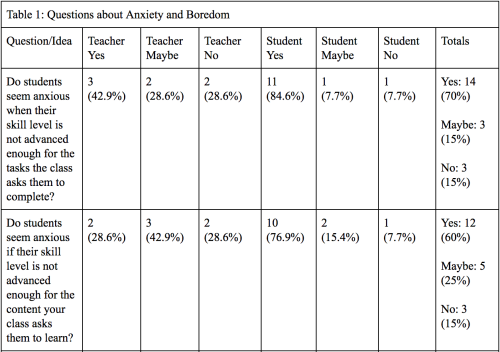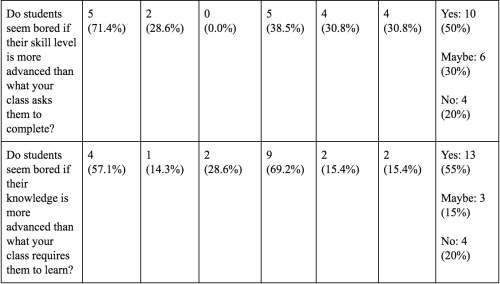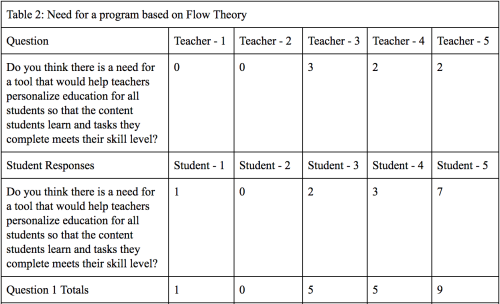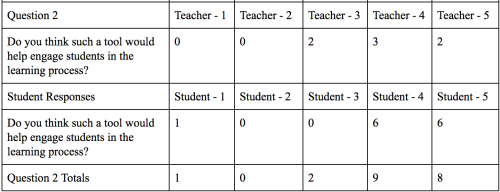|
The Need for a Question In my last post, I discussed my passion and the direction I believe it is taking me. I ended that post with the idea that the next step was to get out and talk to others to see if my ideas were shared, or if I had misconceptions concerning student engagement, boredom, and anxiety, i.e., the state of flow students experience in K-12 education. To check on my ideas I sent an informal survey out to current or recent teachers as well as current or recent high school students. I received 7 responses from teachers and 13 responses from students. There were interesting discrepancies in the responses. These discrepancies can be seen in Table 1. I found this data to be interesting because it suggests that teachers are better at recognizing boredom in students than they are anxiety (which makes sense because it is more socially acceptable to be bored than it is anxious). However, the more important suggestion from the data was that the majority or participants believe students are either bored or anxious within certain contexts. I followed the above questions by asking participants to rank the need for a program or tool that would help students experience flow in the classroom from 1-5, and whether they thought such a program would engage students on a scale from 1-5. The responses are in Table 2. Table 2 illustrates that students feel a greater need for a program that utilizes Flow Theory than teachers do; however, both groups of participants seem to feel that such a program would help engage students in the learning process. The answers to these questions seem to reinforce the ideas from my previous post that students face boredom and anxiety in the classroom. With this information in hand, I set out to find my research question.
Clarifying The Question In order to create a question that was focused and could be researched, I workshopped my ideas with Dr. David Wiley and other graduate students in my grant writing class. The initial version of my question was:
We took this question and identified any variables within the question, words or phrases, that could be changed to make the question more specific. This led to a question that looked like:
After listing out different words or phrases for each parenthetical phrase, the question was revised to read:
After repeating the exercise of bracketing and specifying or rearranging different variables in the question, the question went through the following versions:
This final form of the question (#7) is the question that I will be focusing on for my future research. There is still more work to be done with the question, such as specifying which students I am concerned with researching. Also, I need to make sure that I am not repeating work that has already been done. Next, I must get into the literature to discover what work has been done in the realm of K-12 Flow Theory applications.
0 Comments
Your comment will be posted after it is approved.
Leave a Reply. |
About
This blog presents thoughts that Cecil has concerning current projects, as well as musings that he wants to get out for future projects. For questions or comments on his posts, please go to his Contact page. Archives
April 2024
Tags
All
|




 RSS Feed
RSS Feed
